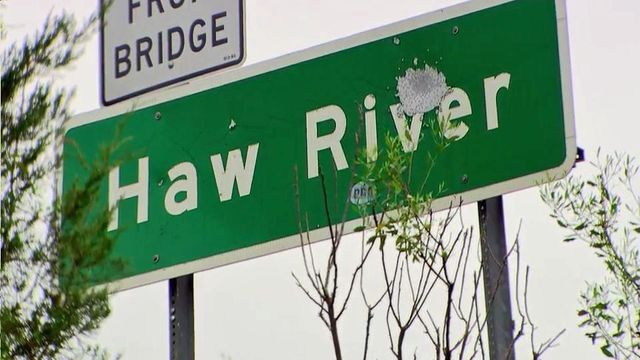Taxpayers foot big bill for dangerous Haw River rescues
Hitting waterways for a little paddling is a rite of summer for many in the Tar Heel State, but the Haw Rivers has developed a notorious reputation and a scary nickname - Hell River. It's because of the frequency with which emergency crews, many times in Chatham County, are called to rescue paddlers who get themselves into trouble on the river.
Posted — UpdatedIt's because of the frequency with which emergency crews, many times in Chatham County, are called to rescue paddlers who get themselves into trouble on the river.
"We have a lot of amateurs that come spur of the moment," Mark Riggsbee, a deputy chief with the North Chatham Volunteer Fire Department, said. "We'd really like...do your homework before you get on the Haw."
While calls to the Haw River are frequent for Riggsbee and other volunteers, he said the calls are never business as usual.
"The Haw River changes constantly. It's quick up and down. A lot of debris comes down the Haw, which is constantly changing," Riggsbee said. "Every time we enter the Haw River when it's at these high levels, our guys are at extreme risk of being injured or even killed."
"They risked their lives just to make sure we got out," Pugh said.
Chatham County Emergency Management said the May rescue of Pugh and Wright cost about $20,000 in taxpayer money.
"It's a very expensive rescue to perform," Riggsbee said.
Taxpayers have footed the bill for all of them.
"It's many thousands of dollars, and there is no way to recoup that right now," Riggsbee said.
Chatham County leaders have floated the idea of charging boaters for rescues, similar to how people can be forced to foot the bill for resources used during responses to fake bomb threats.
So far, that idea hasn't gotten much support. Some states such as California and Oregon give agencies power to charge people for rescues, but they must prove gross negligence by boaters or hikers, which can be difficult.
Rescuers also fear that making people foot the bill for resources may have a negative effect. Instead of acting as a deterrent, some believe it may stop people from calling for help when they are in trouble.
"We've never gotten to a point where they've decided to pass a county ordinance to start charging," Riggsbee said. "Like I said, it's been talked about many times."
Riggsbee says most boaters rescued on the Haw River are inexperienced. He said he thinks people should think twice about into the river without proper training.
"Rescues on the Haw, to us, are a very extreme danger," he said. "They're one of the most dangerous things we do."
• Credits
Copyright 2024 by Capitol Broadcasting Company. All rights reserved. This material may not be published, broadcast, rewritten or redistributed.






